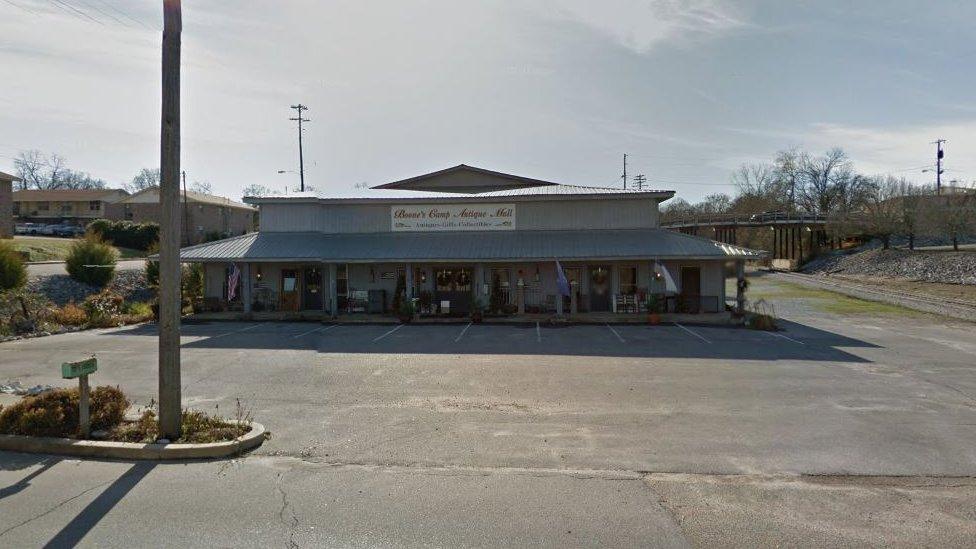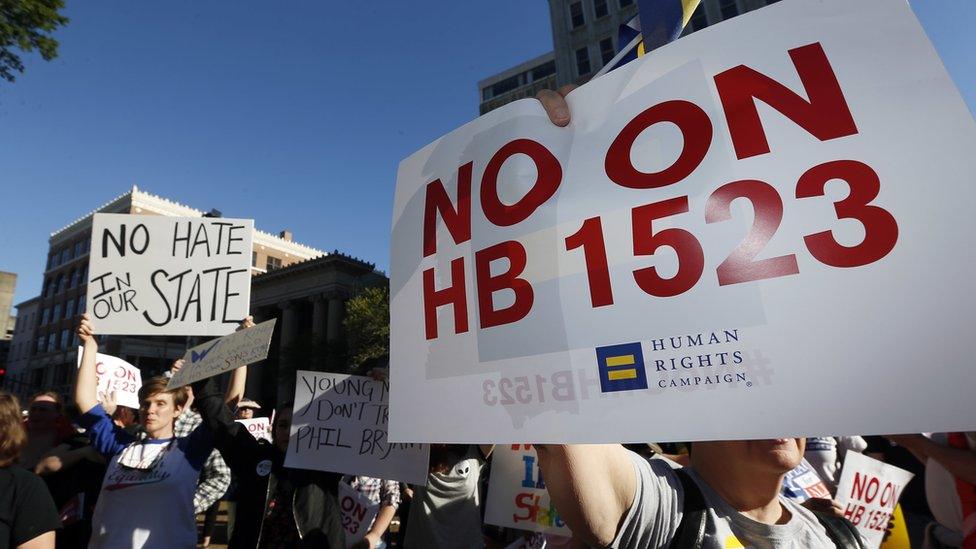Mississippi wedding venue refuses interracial pair over owner's Christian faith
- Published

Boone's Camp Event Hall in Booneville, Mississippi
A US interracial couple was turned away by a wedding venue because the owner said their union went against her Christian beliefs, video shows.
The footage was filmed at Boone's Camp Event Hall in Booneville, Mississippi, by the groom's sister who met the woman about the rejection.
During the exchange the owner says the decision was because we "don't do gay weddings or mixed race".
The owner apologised in a now-deleted Facebook post.
The video was first reported by website Deep South Voice, and quickly went viral on social media.
Allow X content?
This article contains content provided by X. We ask for your permission before anything is loaded, as they may be using cookies and other technologies. You may want to read X’s cookie policy, external and privacy policy, external before accepting. To view this content choose ‘accept and continue’.

LaKambria Welch said her brother and his partner were first told in an email the venue was not prepared to host the event. So Ms Welch went down in person to find out more.
"First of all, we don't do gay weddings or mixed race," says a woman in a grey shirt, identified as the venue's owner by US media.
Asked why not, she replied: "Because of our Christian race, I mean our Christian beliefs," adding: "We just don't participate. We just choose not to."
When asked what passage of the Bible informs that belief, the owner adds: "I don't want to argue my faith."
The exchange prompted the City of Booneville to release a statement condemning "these types of discriminatory policies".
Allow Facebook content?
This article contains content provided by Facebook. We ask for your permission before anything is loaded, as they may be using cookies and other technologies. You may want to read Meta’s Facebook cookie policy, external and privacy policy, external before accepting. To view this content choose ‘accept and continue’.

The Facebook page for Boone's Camp Event Hall was taken offline following the video's release, but later re-opened on Sunday to post a lengthy apology before being closed again.
In the post the owner said she had been taught as a child that people were meant to stay "with your own race" but that after consulting with her pastor she now realised nothing in the bible prohibited interracial marriages.
She continued: "To all of those offended, hurt or felt condemn [sic] by my statement I truly apologise to you for my ignorance in not knowing the truth about this. My intent was never of racism, but to stand firm on what I 'assumed' was right concerning marriage."
In a statement provided to BBC News, the Boone's Camp Event Hall said "they are grateful that the bride forgave them" and that the couple has been re-invited to use the event space.
Interracial marriage has been legal across the US since 1967 when the Supreme Court reached that decision in Loving v Virginia.
In 2016, Mississippi passed a first of its kind law that protects "sincerely held religious beliefs or moral convictions", meaning businesses can legally refuse service to same-sex partners and transgender people.
The law, which was meant to preserve religious freedom, does not mention race.
- Published5 April 2016

- Published29 August 2019